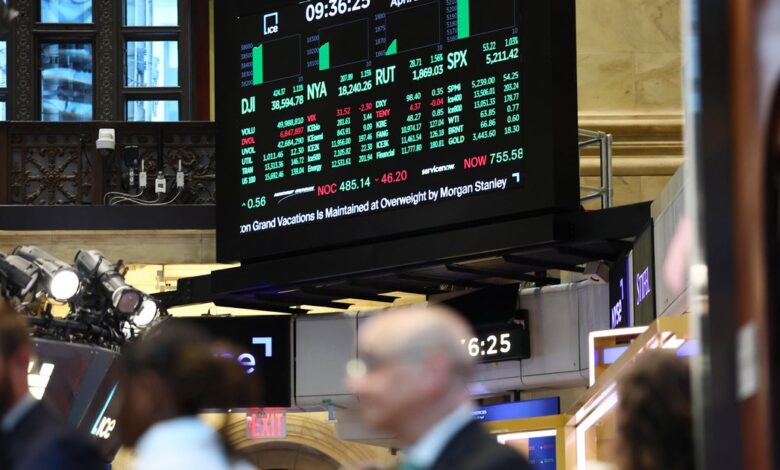Wall Street ends week on muted note amid ongoing trade uncertainty

In recent days, the U.S. stock market has been experiencing fluctuations, indicating a potential end to a three-day rally driven by investor optimism regarding a potential de-escalation in the ongoing trade war. The Dow Jones Industrial Average saw a slight increase of 20 points, closing at 40,114, while the S&P 500 gained 40 points, closing at 5,525. The Nasdaq Composite experienced a more significant increase of 1.3%, largely driven by a boost from Big Tech stocks like Nvidia.
The shift in market sentiment can be attributed to President Trump’s recent softening stance on trade, which has alleviated investor concerns and sparked a relief rally following a volatile trading day earlier in the week. Paul Ashworth, chief North America economist at Capital Economics, noted in a research note that market activity played a significant role in the president’s decision to reconsider steep tariffs on Chinese imports, currently at 145%.
However, there are mixed signals emerging from the White House regarding potential trade deals. While President Trump hinted at a possible trade agreement with China, Chinese officials have denied engaging in active negotiations. Reports suggest that China may be rolling back retaliatory tariffs on U.S. semiconductors, indicating a potential relaxation of their stance.
Market analysts caution that the current environment is headline-driven and prone to volatility spikes in both directions. Uncertainty surrounding trade policies has led several companies to revise their financial forecasts for the upcoming year. Intel and Eastman Chemical reported elevated uncertainty across the industry, impacting revenue and profit forecasts. Skechers U.S.A. also cited macroeconomic uncertainty stemming from global trade policies as a reason for pulling its financial forecasts.
Despite the uncertainty, President Trump and his administration have been engaging in discussions with various countries to negotiate bilateral trade deals. The temporary pause on reciprocal tariffs for 90 days has provided some relief to markets and consumers. UBS analysts believe that this pause demonstrates an awareness of the negative impact tariffs can have on market activity.
Looking ahead, there is speculation that tariffs on Chinese imports could be reduced to 50-65%. However, analysts warn that even with reduced tariffs, the U.S. economy may still face challenges in achieving sustainable growth. The ongoing trade war continues to pose a significant burden on companies and the economy.
While the U.S. stock market experienced some volatility, there were positive signs in other areas. Treasury yields eased, and the U.S. dollar index rebounded, providing some relief. In global markets, European indexes rose modestly, while Asian markets saw mixed movements.
In conclusion, the uncertainty surrounding trade policies continues to impact the U.S. stock market, with investors closely monitoring developments in trade negotiations. The market remains volatile, and clarity on trade policies is needed to provide a more stable environment for investors and businesses alike.





